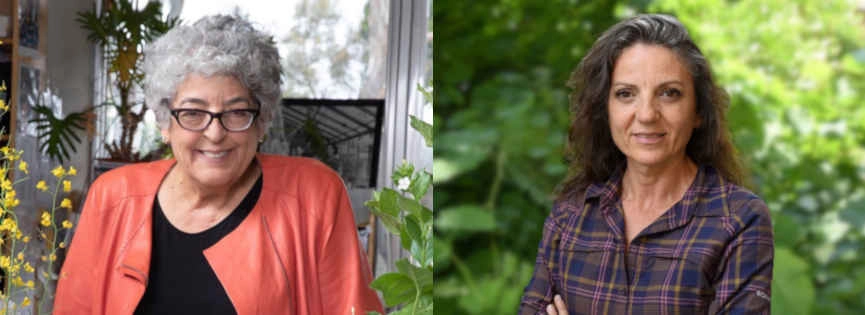Main content
Joanne Chory and Sandra Myrna Díaz 2019 Princess of Asturias Award for Technical & Scientific Research

- Speech by Sandra Myrna Díaz
I would like to express my deepest gratitude to all the institutions and people that, each from their own position, make these awards and this unforgettable ceremony possible each year.
I am tremendously proud to jointly receive, together with Joanne Chory, the Princess of Asturias Award for Technical and Scientific Research and consider it an honour to all those who study Nature, which I like to define as the fabric of life. A fabric of which we are part that both runs through us and weaves us together.
This is not just a poetic turn of phrase. Present –as I am– on the soil that gave rise to Cervantes, Federico García Lorca, Miguel Hernández and so many others, it would not be a good idea for me to try to compose bad poetry here.
I say that the fabric of life both runs through and weaves us together because that is what the most comprehensive, up-to-date scientific evidence tells us.
Nature is fundamentally relationships: it comprises building and grinding and a constant remaking with the same materials. All the people that are here –as well as codfish, tigers and worms, tomatoes that languish in the supermarket and yeasts that make bread rise– are made up of the same atoms that have been weaving and unravelling and reweaving themselves for millions of years.
These ancient atoms first formed part of the person who drew the bison in the Cave of Altamira, not far from here; then they were recycled to form the bats that Goya drew and to form Goya himself; then Goya and his bats ended up on the compost heap; then some of the atoms went to form García Lorca’s jasmine and ants, and Miguel Hernández’s onions and bees; while other atoms crossed the sea, some as the wood of a ship, others as some of my ancestors, who travelled inside the ship; other atoms sank into the sea and now form part of codfish.
And in this wonderful interweaving, plants constitute the supreme alchemist. We take it for granted, but every day green plants carry out the incredible feat of transforming the inanimate molecules of air, water and soil into life for the entire planet, as well as into food, shelter and histories for human beings.
That is why this idea that Nature is out there, that it has nothing to do with you, is a post-truth in every sense of the term.
In fact, people are inseparably and perpetually linked to Nature, and today we live in a world that is much more interconnected than ever, more interlinked than ever before in history, but this has not made it a more just world.
Our aspiration to continually consume and accumulate more subjugates the universal right to enjoy a full relationship with the fabric of life. This is because, following the laws of physics and biology, if too many threads are devoured or discarded at one point of the fabric, cracks and holes inevitably occur at other points.
And we are not talking about just a few holes: there are more and more holes and they are very poorly distributed, within a process of global environmental injustice on an unprecedented scale.
So what do we do? Do we renounce a relationship with plants that has persisted for millions of years? Our studies say, not necessarily. They indicate that there is very little time and it will be very difficult, but we are still in time to reweave this fabric and re-interweave ourselves within it.
Each thread is very fragile, but the fabric as a whole has the strength of the many, a robustness made up of countless interwoven fragilities.
So I dedicate this award to all the fragile ones, on whose loving struggle the persistence of the fabric of life depends today and will depend in the future.
Traducido por Paul Barnes.
End of main content
